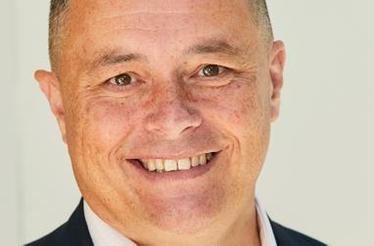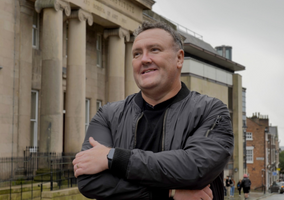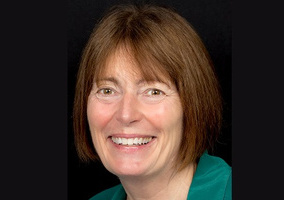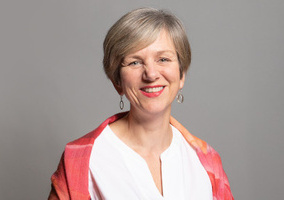You would be forgiven for not having heard of the Medaille Trust, or being able to pronounce it, chief executive Garry Smith says.
French for the word medal, the name was chosen by the charity’s founder, Roman Catholic nun Sister Ann Teresa, after the founder of her religious order Father Jean Paul Médaille.
The work of the Medaille Trust began when Ann Teresa, who died last year, became concerned after seeing many sex workers on the streets of Southampton.
Smith says: “She’d just fill a flask of coffee and share it with these girls and befriended them, showed them a bit of kindness.
“Over time, she noticed that there were fewer British girls and more Eastern Europeans. And once she got to know them better, having them round the convent for meals and helping them sort stuff out, she learned their stories.
“A lot of them had been tricked into coming into the UK with offers of working in hospitality or some kind of educational programme. She was absolutely outraged by this and said something must be done.”
Once her work supporting these girls grew, her convent asked her to form a separate charity.
This led to the launch of the Medaille Trust in 2006, which works to provide refuge and freedom from modern slavery.
“Since then, we’ve been saddled with this name that nobody can spell, and no one can pronounce and it doesn't say what we do,” says Smith.
He initially attempted to change the name when joining the charity in 2018, but was met with resistance from the board and partners.
“We’ve got used to it now. I would prefer something that actually says what we do but we’re not alone in that. The name Salvation Army is not exactly transparent and they’re the biggest provider of homeless services in the UK.”
Funding challenges for faith-based charities
When the charity began 17 years ago, it consisted of Ann Teresa and a few friends, says Smith.
Now it employs 120 members of staff and operates 10 safe houses, six community hubs and conducts prevention work in Albania. Its income in the year to March 2022 was £5.1m.
The charity is one of the biggest providers of safe house accommodation for men, women and children who are victims of modern slavery in the UK.
However, Smith says, the charity can struggle to get funding due to its faith-based roots. He says there are often preclusions in bids that mean no religious organisations are eligible for funding, no matter their mission.
“It can be a challenge for faith-based organisations, which is a shame because we’re not trying to convert people to the Christian or Catholic faith or anything like that.
“We’re here to support victims of modern slavery, human trafficking and people that are in distress and need to recover.”
Austerity is a big issue for charities
Smith says that continued austerity and rising cost-of-living pressures are a challenge for all charities including the Medaille Trust.
“We’re all fishing in the same pool for money and certainly when I talk to grantmakers, they are massively oversubscribed. They can’t possibly give to all the people that apply for grants. Money is always a challenge for charities, and the sustainability of programmes because of resources is always the number one issue for us.
“We derive a fair bit of our income from a government contract. But we also have a desire to work beyond the limitations of that contract, in order to meet needs that we see, therefore you need to fundraise for that.”
This is where the charity’s lack of reputation outside of the sector can prove difficult, he says.
Smith says he thinks the charity’s roots contribute to why it is relatively unknown outside the modern slavery sector.
“One of the things about religious sisters and Catholic nuns, is they pretty much go about their business under the radar, they don’t make a big song and dance about it. Their calling is higher than that.”
In 2018, the charity’s income from donations and legacies sat at £796,000. In 2022, it was £2.02m.
‘Remote working before it was fashionable’
Around 20 of the charity’s employees work remotely – including its entire senior leadership team.
“We were doing that before it was fashionable,” Smith said.
The remaining 100 employees are based in safe houses across the UK, so are unable to work from home.
Smith says having an office would be “a waste of money for us” and remote working has helped increase the regional diversity of the 20 employees that do so.
“It saves money, it saves the planet and it saves a lot of time and hassle,” he says.
“But I don’t think it can quite recreate the benefit of a face-to-face meeting. I’m remote from 10 safe houses so I have to then create the moments to go and visit them and jump on a train or stay in a hotel overnight to make sure that I connect with the wider team.”
Smith aims to visit each safehouse three times a year while the senior leadership team meets in person once a month.
‘Inclusion is the most important thing’
Medaille Trust has been working on improving diversity, equity and inclusion at the organisation, Smith says.
The charity has been working with an expert who has emphasised the importance of inclusion in particular.
“You can measure having the most diverse workforce in the world. But if those people feel like they don’t fit in; their face doesn’t fit, their culture isn’t valued and their views are not taken into account and they don't feel like they belong, what’s the point?
“Just being diverse isn’t a good thing in itself. What you want is a diverse workforce where everybody in that workforce feels like they are valued for who they are, what they do, and treated well and respected. All of those things are really important.”
While the charity has an inclusive and diverse team, there is always work to do, Smith says.
‘Frontline workers aren’t always the best paid’
Since Smith joined the charity in 2018, it has stopped offering zero-hours contracts in an effort to provide more security for its workers.
One employee told the CEO this change in contract helped them to secure a mortgage.
The charity has also become a real living wage employer and gave every worker paid less than £30,000 a year a 10% pay rise last year.
“Generally, the frontline workers aren’t always the best paid. Whether that be the public sector or the charity sector, the thing that’s most dear to you and the reason you exist as an organisation only works if people do their job well, and do it to the standard that you would want it to be done.
“Therefore, I believe those people need looking after and it’s for leaders in the charity sector to ensure that that they look after the people at the frontline.
“These are the people that are doing the hard work. I rely on them for the reputation of our charity, so I’m going to do my best to pay them as much as we can afford to pay them. I hope that then is reciprocated by them saying: ‘They’ve done their best for us and we’ll do our best for them.’”












